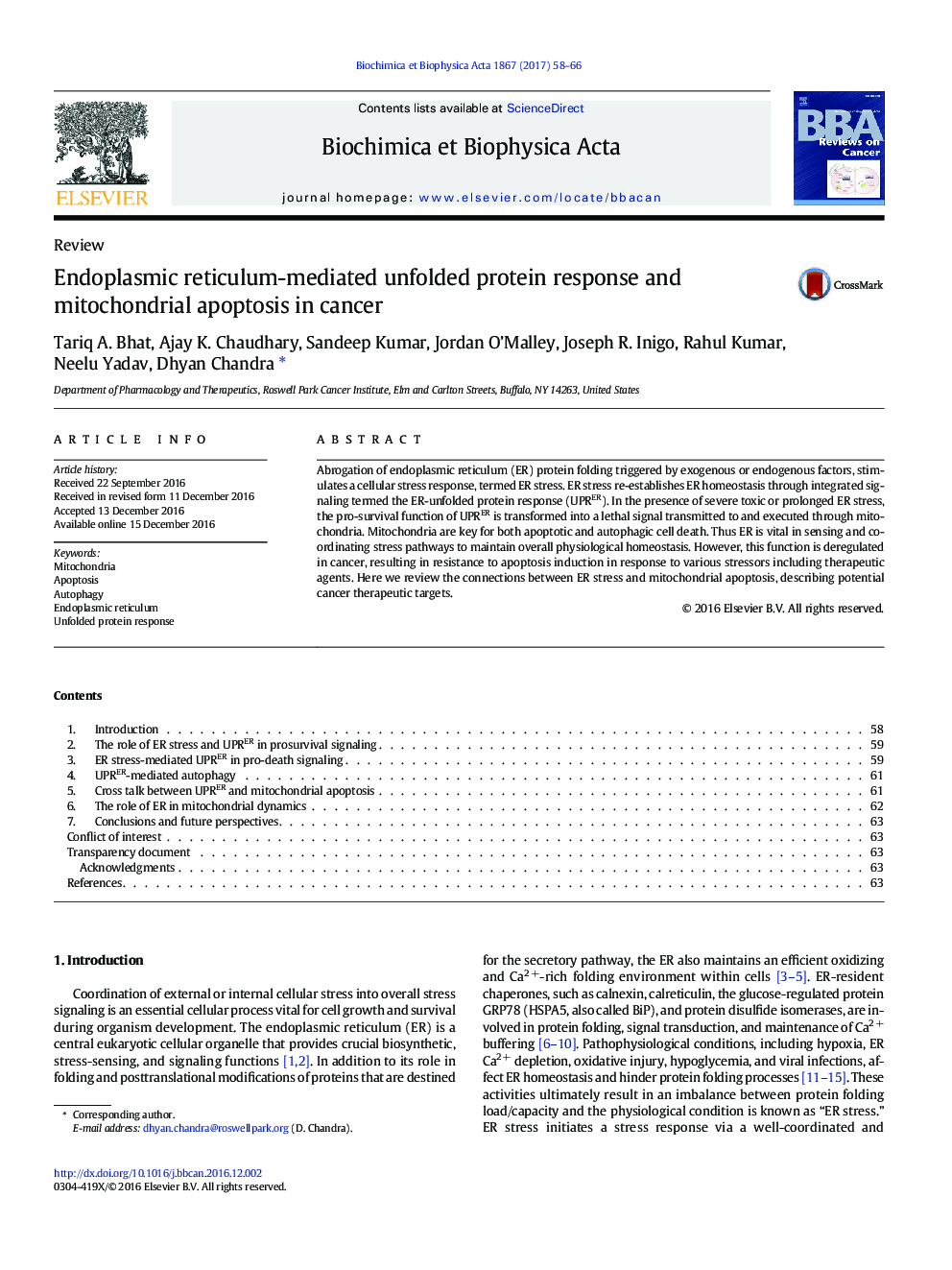| Article ID | Journal | Published Year | Pages | File Type |
|---|---|---|---|---|
| 5524032 | Biochimica et Biophysica Acta (BBA) - Reviews on Cancer | 2017 | 9 Pages |
â¢UPRER promotes switch from pro-survival to pro-death signaling under severe stress.â¢Mitochondria facilitate pro-death signaling initiated by UPRER.â¢ER-mediated mitochondrial dynamics affect mitochondrial function.â¢Deregulated UPRER-mitochondrial cross talk confers resistance to apoptosis.â¢Promoting UPRER pro-death signaling is an intriguing strategy for cancer therapy.
Abrogation of endoplasmic reticulum (ER) protein folding triggered by exogenous or endogenous factors, stimulates a cellular stress response, termed ER stress. ER stress re-establishes ER homeostasis through integrated signaling termed the ER-unfolded protein response (UPRER). In the presence of severe toxic or prolonged ER stress, the pro-survival function of UPRER is transformed into a lethal signal transmitted to and executed through mitochondria. Mitochondria are key for both apoptotic and autophagic cell death. Thus ER is vital in sensing and coordinating stress pathways to maintain overall physiological homeostasis. However, this function is deregulated in cancer, resulting in resistance to apoptosis induction in response to various stressors including therapeutic agents. Here we review the connections between ER stress and mitochondrial apoptosis, describing potential cancer therapeutic targets.
